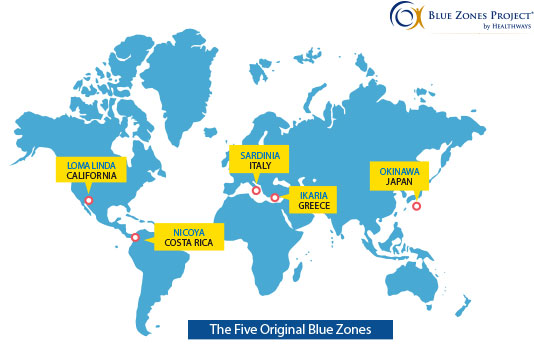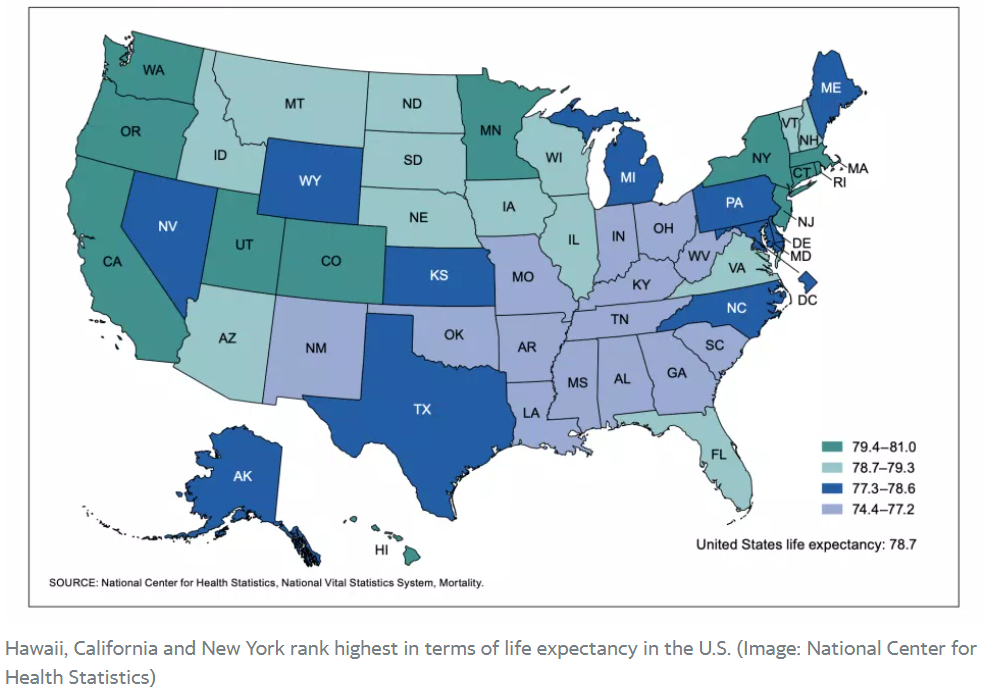Geographic Evidence That We Are Doing Something That Makes Dementia and Mental Illness Worse
There are small areas of the world known as “Blue Zones” where the incidence of Alzheimer’s and autoimmune disease is almost non-existent. (Learn more about how Alzheimer’s and autoimmune disease are strongly linked.) 5 areas were located using epidemiological data, statistics, birth certificates, and other research. In these Blue Zones people reach age 100 at 10 times greater rates than in the United States.
The people in these regions are not significantly genetically different from the rest of the world, but significant differences in lifestyle (such as diet) have been identified.

Lifespan even varies significantly from state to state within the same country.
Regulations Are Invaluable Natural Experiments
Macro-level epidemiological data includes the incidence of various diseases over time combined with data on the amounts of different drugs or food additives. This is how it was initially discovered that smoking caused lung cancer. With macro-level data, it’s even harder to distinguish correlation from causation. However, different countries often enact different policies that can serve as very useful natural experiments.
For instance, 30 countries have banned the use of glyphosate. If the rates of Alzheimer’s, autism, and depression declined in these countries and did not decline in the countries still using glyphosate, this would provide very powerful evidence regarding its effects. Unfortunately, there is no global database that currently provides easy access to the incidence of these conditions in various countries over time and the levels of exposure to various chemicals.
We need to collect more data to take advantage of these geographic natural experiments. With enough data, we could discover hidden factors reducing or contributing to chronic illnesses. Then by providing real-time decision support to individuals, we could apply these lessons learned to reduce chronic disease burden throughout the world.
Regulations Are Invaluable Natural Experiments
Macro-level epidemiological data includes the incidence of various diseases over time combined with data on the amounts of different drugs or food additives. This is how it was initially discovered that smoking caused lung cancer. With macro-level data, it’s even harder to distinguish correlation from causation. However, different countries often enact different policies that can serve as very useful natural experiments.
For instance, 30 countries have banned the use of glyphosate. If the rates of Alzheimer’s, autism, and depression declined in these countries and did not decline in the countries still using glyphosate, this would provide very powerful evidence regarding its effects. Unfortunately, there is no global database that currently provides easy access to the incidence of these conditions in various countries over time and the levels of exposure to various chemicals.
We need to collect more data to take advantage of these geographic natural experiments. With enough data, we could discover hidden factors reducing or contributing to chronic illnesses. Then by providing real-time decision support to individuals, we could apply these lessons learned to reduce chronic disease burden throughout the world.


Leave a Reply